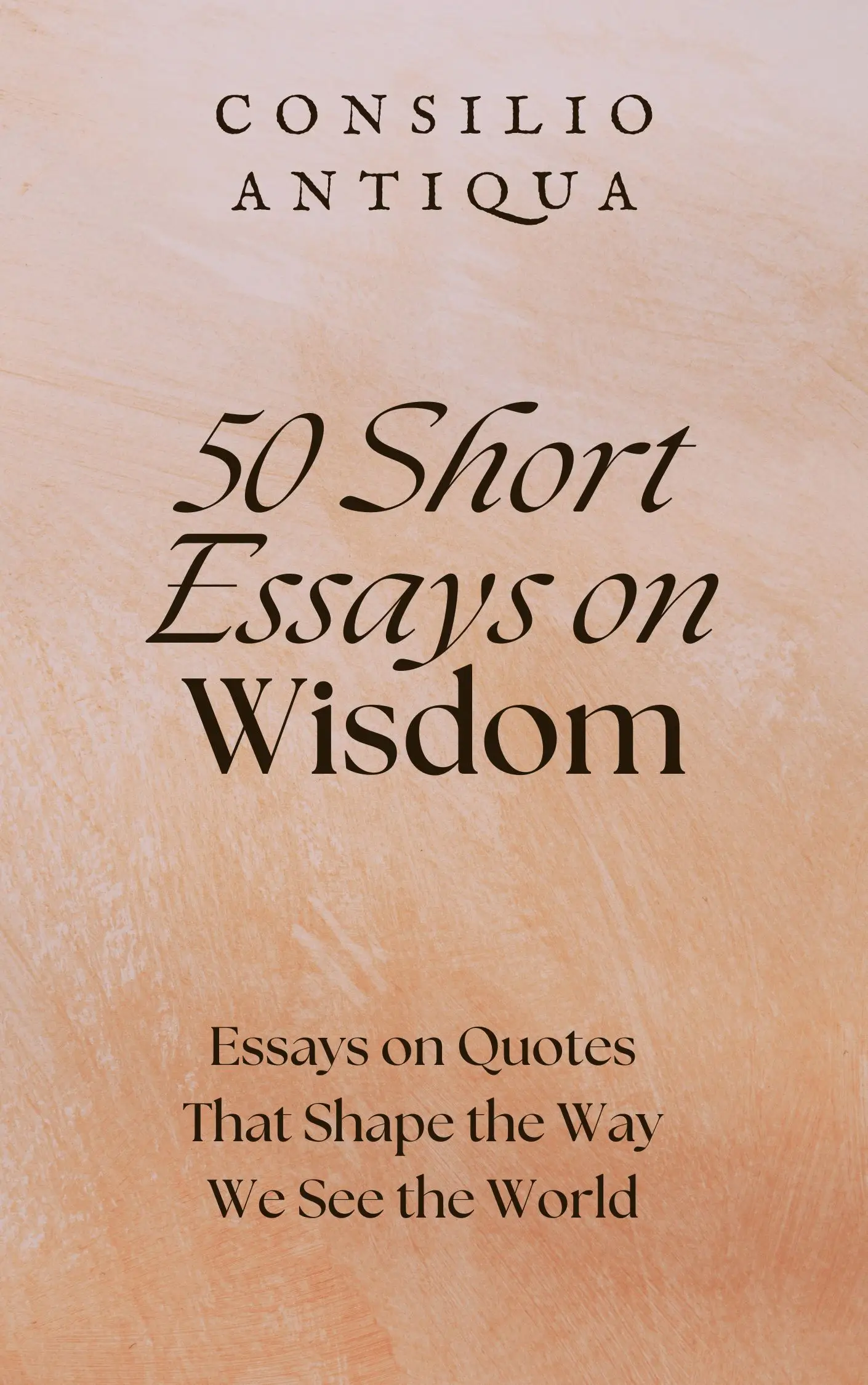
50 Short Essays on Wisdom | The Fleeting Embrace
The Fleeting Embrace
"Easy come, easy go." - Proverb
The chipped ceramic mug warmed my hands, its surface cool against my fingertips. A gift from a friend, long since moved away, it held the faintest trace of lavender from a forgotten potpourri. This small, quiet object, a testament to a friendship’s ebb and flow, perfectly embodies the wisdom of “Easy come, easy go.” This proverb, echoing across cultures and centuries, speaks not merely of material possessions, but of the transient nature of all things, urging us toward a deeper appreciation of the present moment.
The proverb’s origins are shrouded in the mists of time, appearing in various forms across different cultures. Its essence, however, remains consistent: a recognition of the impermanence inherent in life. In ancient societies, where survival often depended on the unpredictable rhythms of nature, this understanding was deeply ingrained. The bounty of a good harvest could swiftly vanish with a sudden drought, reminding people of the precarious balance between abundance and scarcity. This understanding wasn't simply fatalistic; it fostered a deep appreciation for the gifts received, however fleeting. Ancient texts, from the Tao Te Ching to the Bhagavad Gita, reflect this philosophy, emphasizing the importance of living in the present rather than clinging to what is impermanent.
At its core, “Easy come, easy go” is a call to mindful engagement. It’s not a condemnation of acquisition, but a gentle nudge towards a more considered approach. The wisdom lies not in rejecting material comforts, but in understanding their inherent impermanence. This understanding frees us from the anxieties of attachment, allowing us to appreciate the gifts life offers without being consumed by the fear of loss. The proverb’s enduring power stems from its ability to resonate with our deepest anxieties: the fear of losing loved ones, the fear of failing, the fear of the unknown. By acknowledging the transient nature of these fears, we can begin to navigate them with greater grace.
In our modern world, saturated with consumerism and instant gratification, the proverb’s message is perhaps more relevant than ever. The relentless cycle of acquiring and discarding, fueled by advertising and social media, often leaves us feeling empty and unfulfilled. We chase fleeting trends, accumulating possessions that quickly lose their luster, mirroring the ephemeral nature of online validation. Relationships, too, can fall under this shadow, with connections formed quickly and dissolved just as easily. The wisdom of “easy come, easy go” encourages us to cultivate deeper, more meaningful connections, recognizing that genuine relationships require nurturing and sustained effort.
Consider the young woman who, swept up in the whirlwind of online dating, jumps from one superficial connection to another, never truly investing in the depth of human interaction. Or the entrepreneur who, seduced by the promise of quick riches, neglects the foundations of sustainable growth, only to see their enterprise crumble. These are modern manifestations of the proverb’s warning. By understanding the transient nature of superficial gains, we can make more conscious choices, prioritizing substance over fleeting pleasure.
How, then, can we incorporate this ancient wisdom into our contemporary lives? Perhaps it begins with a conscious effort to appreciate the small, everyday moments: the warmth of the sun on our skin, the laughter of a loved one, the quiet beauty of a simple flower. It’s about cultivating gratitude for the present, recognizing that every moment is a gift, however brief. It's about letting go of the need to control outcomes, accepting the ebb and flow of life with a sense of equanimity. What if we approached each relationship, each opportunity, each possession with a deeper awareness of its impermanence? Would we not cherish them more deeply, invest more fully, and ultimately, experience a richer, more meaningful life?
In the end, “easy come, easy go” is not a lament for what is lost, but a celebration of what is present. It’s a reminder to savor the fleeting beauty of life, to appreciate the gifts that come our way, and to let go of what no longer serves us, allowing space for new beginnings. The chipped mug, a silent witness to time’s passage, continues to hold its quiet wisdom, a gentle reminder to live fully in the present moment.
